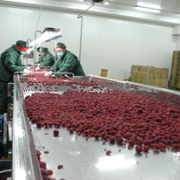Speeches Shim
Despite progress made in reforming the justice sector, rule of law in Bosnia and Herzegovina (BiH) remains weak.
This project helps the country attract investment and create jobs in the energy sector.
Many vulnerable groups in Bosnia and Herzegovina (BiH) – women, national minorities and the LGBTI population, in particular – are often denied human rights and opportunities that others take for granted. Various forms of discrimination permeate all sectors of BiH society, including health care, employment and education. This takes a toll on the country as well as individuals as it prevents thousands of people from contributing fully to development of the country. In 2009, BiH adopted the Law on Prohibition of Discrimination, however, implementation has been weak. This is due largely to low public awareness of legal recourse for discrimination, as well as inefficiency and the lack of action by relevant institutions that do not cooperate with civil society in protecting citizens against discrimination.
As a signatory to the UN Convention on the Rights of the Child and the Convention on the Rights of Persons with Disabilities, Bosnia and Herzegovina (BiH) is obliged to improve the quality of life of children and other persons with disabilities. But the state does little to fulfill its duty and responsibility to this group of citizens. As a result there is a lack of institutional support services for families of children with physical or developmental disabilities. Having to care for a child or other person with a disability precludes their ability to have a job outside the home, go to school, or have any kind of social or personal life. These caretakers – usually the mothers – become psychologically and physically exhausted, with no end or even temporary relief in sight.

The Challenge


Comment
Make a general inquiry or suggest an improvement.